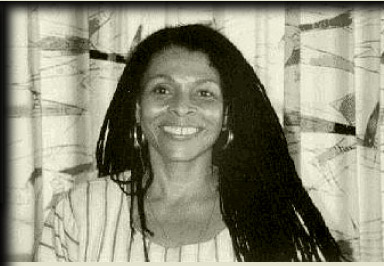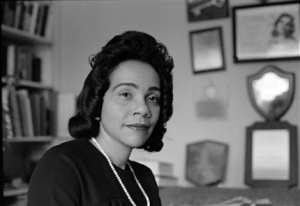The name ‘Shakur’ in today’s society has, usually, one primary thought. That thought is of hip-hop veteran, legend and dearly departed Tupac Shakur. A rapper who was gunned down in his prime of making music which spoke to not only American’s living in his type of surroundings but the whole world. The jump from Tupac Shakur and Assata Shakur is not as great as you will believe either.
Assata Shakur is the step-aunt of the rapper known as Tupac. Her story does not have any links to Tupac, however he has cited her as inspiration and that’s not without basis either. As to the status of Assata Shakur on this date, not many know. Her story took her from Queens, New York to Havana, Cuba. Once her story is told, it will be no wonder that Fidel Castro fought tirelessly to prevent her extradition to America so that she would be incarcerated for crimes the nation had brought against her.
Ms. Shakur’s story starts in, the musically rich city of, Queens, New York. Born as JoAnne Byron, her upbringing wasn’t stable, to say the least. A series of relocations from when her parents divorced, to running away from home, to staying with her aunt, she led a rocky road of dealing with, the witnessing of the, suffering of her people. By the prime age of 20, she had already been arrested for a chain-lock protest outside her college for lack of Black-education.
3 years later, upon changing her name to Assata Shakur, she joined the famous Black Panther Party. This did not last for long, as well as being a stronger pusher for black rights Assata was also expressed strong feelings about a misogynistic society. She left the party and joined the Black Liberation Army as well as the Republic of New Afrika.
At 24 Shakur was shot. She was involved in a struggle with someone in a nearby apartment in which she had enquired as to whether a party was going on, when there was a negative reply a struggle ensued where she had been shot with her own revolver. Assata credits this incident as a focal point in her life, because it was at this moment her fear of being shot had evaporated. The prime age of 24, Assata Shakur was now ready to take on the world.
Future convictions consisted being implicated in armed bank robberies, assaults on police officers and other petty crimes. By 1973, Shakur had built up a résumé of crimes in which an FBI profile was being created; her luck had gotten her past any serious charges. A series of dismissals, acquittals and one hung-jury had prevented Shakur being imprisoned in any way.
This was all set to change in May 1973. In a police stop involved two white police officers and Assata Shakur with 2 accompanying parties, a shoot-out occurred. One police officer was killed with his own gun; one of the males with Assata was killed. Assata and the remaining police officer had been wounded, she and her partner, Sundiata Acoli, got away but were later apprehended in a man-hunt.
Her trial was flawed from the second it was created. The black-revolutionary, who fought for black rights & equality, was tried with an all-white jury. This within itself created a mass conflict of interest for that jury-pool, a fact which was not considered by the judge. Expert witness showed Assata had been shot while her hands were up, in a surrendering action. She had always maintained her innocence but, unsurprisingly, she was convicted and imprisoned for life in an all-women’s correctional facility. Assata Shakur escaped this facility.
Fidel Castro’s Cuba welcomed her with open arms. Cuba’s relation with America, especially after Castro & Guevara’s Cuban Revolution, had never been great. America was so infuriated by Cuba that she took out a trade-embargo upon the neighbouring island, an embargo which still stands today. Castro gave Shakur political asylum in Cuba; under those terms Cuba had no obligation to extradite Assata Shakur back to the United States for prosecution.
“They wanted to portray her as a terrorist, something that was an injustice, a brutality, an infamous lie”
– Fidel Castro
Today Assata Shakur remains a beacon of inspiration. Her story took her from a background which was full of uncertainty, oppression, racism and cultural prejudice to a strong, mature woman who held her own against any man or woman. Her fundamental beliefs had never abandoned here, even when she was shot at the age of 24 she still carried on her fight for her cause.
The whereabouts of Assata Shakur today remains unknown. It is still widely believed Assata is still alive and living in Cuba. In 2007 Assata spoke out to the world via a website dedicated to publishing her own writings and other articles in regard to her life.
“I am 60 years old and I am proud to be one of those people who stood up against the ruthless, evil, imperialist policies of the U.S. government. In my lifetime I have opposed the war against the Vietnamese people, the illegal contras – war in Nicaragua, the illegal coup in Chile, the invasion of Haiti and of Grenada, and every other illegal, immoral and genocidal war the U.S. government has ever waged.”
– Assata Shakur, 2007
As with most civil rights cases, hip-hop has paid an enormous tribute to Assata Shakur. None will perhaps be more famous as rapper Common (real name, Lonnie Lynn), his 2000 song entitled ‘A Song for Assata’. Common mentioned he had travelled to Havana to meet with Assata and discuss this song with her. She had been happy to help and contributed with her own words,
“I know a whole more about what freedom isn’t
Than about what it is, cause I’ve never been free.
I can only share my vision with you of the future, about what freedom is.”– Assata Shakur, ‘A Song for Assata’


